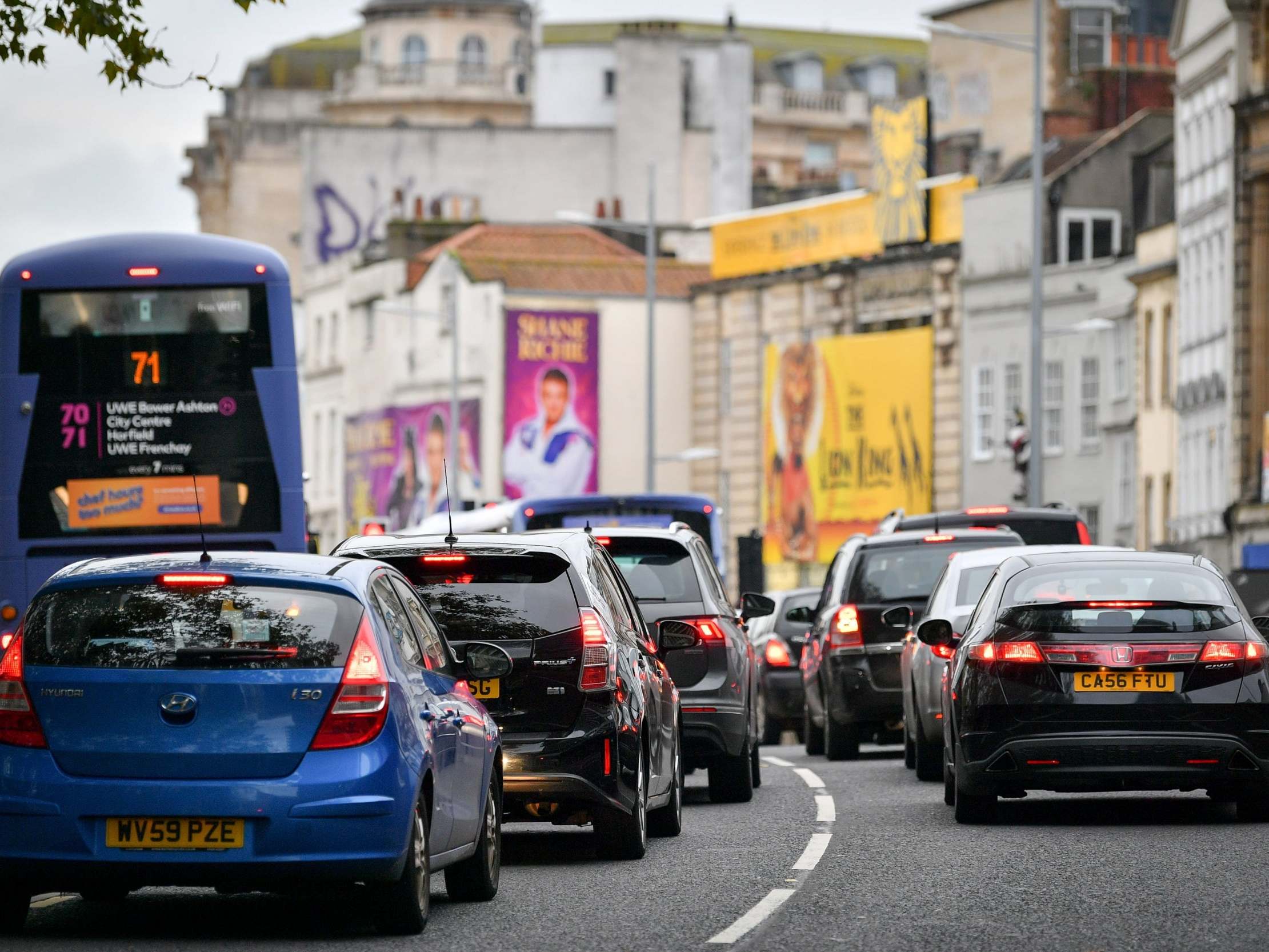Bristol to become first UK city to drive out diesel cars as council approves ban
Mayor approves plans to create clean air zone by 2021 in bid to tackle illegal levels of air pollution

Bristol looks set to become the first city in the UK to ban diesel vehicles.
Citing a “moral, ecological and legal duty”, mayor Marvin Rees has approved plans to stop diesel vehicles from entering the city centre.
The proposal could see all such privately owned vehicles barred from entering the proposed clean air zone every day between 7am and 3pm.
The plans are set to come into force by March 2021, but the thousand-page report must first be sent to the Department for Transport and Defra before a full consultation with locals in 2020.
“We have a moral, we have an ecological and we have a legal duty to clean up the air we breathe,” Mr Rees, the city’s Labour mayor since 2016, told a council cabinet meeting on Tuesday.
The council has considered imposing a £60 penalty for motorists who break the ban but said the size of the fine is yet to be finalised.
A car scrappage scheme has also been proposed in a bid to encourage road users to switch to less harmful alternatives.
Under the “hybrid” plans there would also be a wider clean air zone, where non-compliant commercial vehicles such as buses, taxis, and heavy goods vehicles would still be charged a fee to enter.
The hybrid approach would reduce the number of lower income households directly affected by the measures, and allow the city to meet the government’s test for improved air quality by 2025, the proposals claim.
In 2018, the government lost a legal battle over its plans to reduce nitrogen dioxide levels and was ordered by the High Court to bring air pollution levels into accordance with legal limits as soon as possible.
Bristol is one of several cities in the UK with illegal levels of nitrogen oxide, produced mostly by diesel vehicles. The city’s mayor said the council was planning a wider consultation to help reduce disruption.
“A city is like a big Rubik’s Cube – you move one thing, other things come out of kilter,” Mr Rees said. ”That’s why we take the time to think about it and begin to take action.”
Concerns were raised by Conservative councillors Geoff Gollop and Claire Hiscott, who said access to Bristol Royal Infirmary and other hospitals inside the zone could be affected.
Ms Hiscott said she feared those on low incomes would not be able to transition to different vehicles and would therefore struggle to reach the hospital in an emergency without incurring a “hefty fine”.
The council’s head of paid services, Mike Jackson, said: “We haven’t decided what the amount of that penalty charge should be but in order to do the modelling we have used a fairly standard assumption of a £60 charge.”
Government data has previously shown that pollution contributes to up to 36,000 deaths every year.
The government’s Joint Air Quality Unit, made up of officials from the Department for Transport and Defra, is expected to begin reviewing the plans on Wednesday.
Additional reporting by PA
Join our commenting forum
Join thought-provoking conversations, follow other Independent readers and see their replies
0Comments